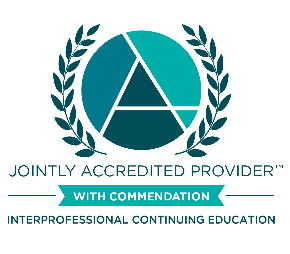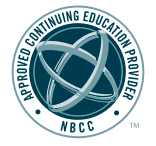A Resource for Healthcare and Social Services Professionals
November 9, 2023
8:00 am–8:30 am ET
Many people experiencing mild alcohol withdrawal syndrome can be successfully managed in the outpatient setting, allowing less interruption to one’s professional, family, and/or social obligations. This training will provide an overview of alcohol withdrawal assessment and management in an outpatient setting. Participants will be able to identify the signs of alcohol withdrawal and appropriate candidates for outpatient withdrawal management. Validated tools to assess alcohol withdrawal will be reviewed, and evidence-based medication for outpatient alcohol withdrawal management will be discussed.
Via Zoom
This training will provide an overview of alcohol withdrawal assessment and management in an outpatient setting. Participants will be able to identify the signs of alcohol withdrawal and appropriate candidates for outpatient withdrawal management. Validated tools to assess alcohol withdrawal will be reviewed, and evidence-based medication for outpatient alcohol withdrawal management will be discussed.
Currently, there are a variety of gaps in outpatient provider knowledge and skills to appropriately recognize individuals at risk for alcohol withdrawal. In addition, there is a lack of comfort in assessing who is appropriate or not for outpatient alcohol withdrawal management. This training looks to improve provider knowledge in addressing alcohol withdrawal in outpatient settings while providing evidence-based management options, including the use of medication. This training will bring awareness to the prevalence of individuals at risk for alcohol withdrawal management across outpatient care teams, including providers, nursing, and peer supports.
Prescribers, nurses, social workers, and other clinical and non-clinical staff.
Medical Director of Respite Programs, Boston Healthcare for the Homeless Program
Boston Medical Center Grayken Center for Addiction TTA, Massachusetts Department of Public Health, Bureau of Substance Addiction Services (DPH/BSAS)
Funding for out of state attendees is provided by the Opioid Response Network (ORN).
Funding for this initiative was made possible (in part) by grant no. 1H79TI083343 from SAMHSA. The views expressed in written conference materials or publications and by speakers and moderators do not necessarily reflect the official policies of the Department of Health and Human Services; nor does mention of trade names, commercial practices, or organizations imply endorsement by the U.S. Government.
REQUIREMENTS for credit
Please note this policy is strictly enforced for accreditation purposes. Participants will forfeit collection of credit and certificates of completion if more than 10 minutes of the training is missed.
CME
 In support of improving patient care, Boston University Chobanian & Avedisian School of Medicine is jointly accredited by the Accreditation Council for Continuing Medical Education (ACCME), the Accreditation Council for Pharmacy Education (ACPE), and the American Nurses Credentialing Center (ANCC), to provide continuing education for the healthcare team.
In support of improving patient care, Boston University Chobanian & Avedisian School of Medicine is jointly accredited by the Accreditation Council for Continuing Medical Education (ACCME), the Accreditation Council for Pharmacy Education (ACPE), and the American Nurses Credentialing Center (ANCC), to provide continuing education for the healthcare team.
Boston University Chobanian & Avedisian School of Medicine designates this live activity for a maximum of 0.50 AMA PRA Category 1 Credit(s)™. Physicians should claim only the credit commensurate with the extent of their participation in the activity.
Nursing
Boston Medical Center is approved as a provider of nursing continuing professional development by the American Nurses Association Massachusetts, an accredited approver by the American Nurses Credentialing Center’s Commission on Accreditation. Participants who complete and return the evaluation and stay for the entire session will be awarded 0.50 contact hours.
LMHC
 BMC Grayken Center of Addiction TTA has been approved by NBCC as an Approved Continuing Education Provider, ACEP No. 7188. Programs that do not qualify for NBCC credit are clearly identified. BMC Grayken Center of Addiction TTA is solely responsible for all aspects of the programs. For this program, 0.50 contact hours will be offered to participants who attend the training and complete the evaluation.
BMC Grayken Center of Addiction TTA has been approved by NBCC as an Approved Continuing Education Provider, ACEP No. 7188. Programs that do not qualify for NBCC credit are clearly identified. BMC Grayken Center of Addiction TTA is solely responsible for all aspects of the programs. For this program, 0.50 contact hours will be offered to participants who attend the training and complete the evaluation.
LADC/CADC & Recovery Coach
Grayken Center for Addiction TTA is approved to offer LADC/CADCs and recovery coaches who complete this course 0.50 general continuing education credits.
Disclaimer
Continuing education (CE) requirements vary by license and jurisdiction. When requesting continuing education credits, please ensure you are following the rules and regulations determined by the board regulating your license. Boston Medical Center Grayken Center for Addiction TTA does not oversee adherence to licensing requirements and regulations.